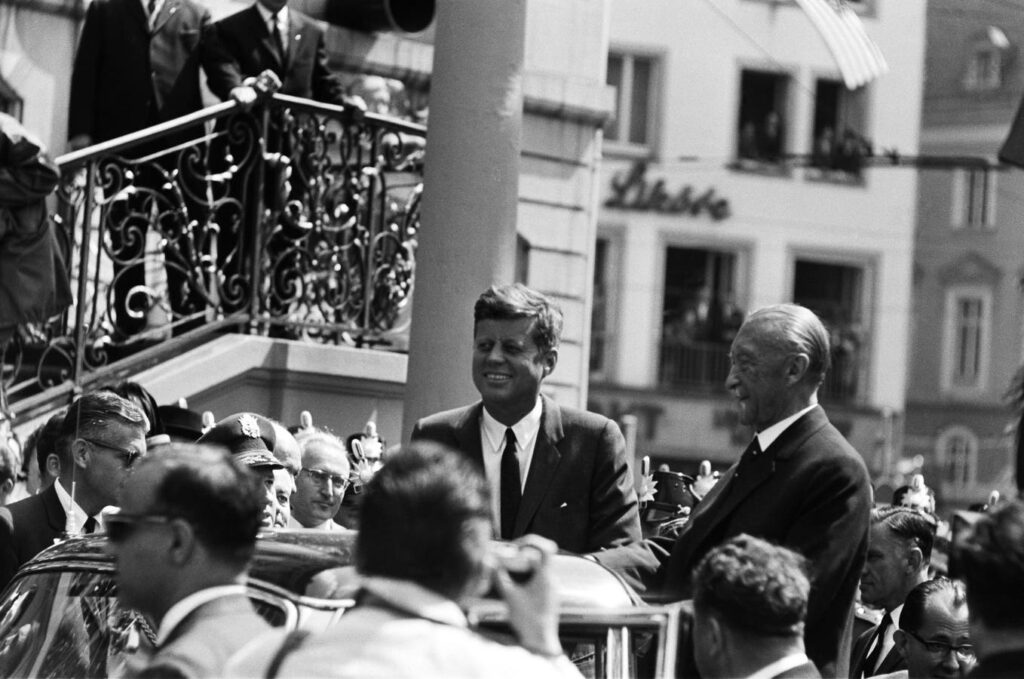John F Kennedy, who died this week 61 years ago, is famous for many things, but a lesser known accomplishment is that he won a Pulitzer Prize for a bestselling book entitled ‘Profiles in Courage’, that told the stories of eight American political figures (mostly senators if I recall) who took morally courageous stands on issues that went against the views of their parties and popular opinion. An example was John Quincy Adams’ decision to break from the Federalist Party (over foreign policy).
Like all things Kennedy, the book was a dazzling success, but also had a few magical ingredients. It is generally accepted that Ted Sorensen, adviser and speechwriter to Kennedy, contributed much of the book, or in his own terms, he wrote ‘many of the words that made up the sentences’. Equally, the book did not make it through the formal entry process for the Pulitzer, but was nudged into the competition by Joe Kennedy, the president’s father.
As an aside, in the context of the recent presidential election, it could well be argued that Joe Kennedy was a Trumpian figure…or that Trump is simply following the ‘Patriarch’s; example (David Nasaw’s book of this title is very good). Joe Kennedy accomplished more as a businessman than Trump, but fell short in his political career. Instead, he groomed Joe junior(killed in the second world war), then John, Bobby and Ted.
One of Joe senior’s achievements was his appointment as American ambassador to the UK, but his term was cut short because of his perceived stance on appeasement. With some irony, Joe senior had encouraged the publication of his son’s Harvard thesis as a book.
‘Why England Slept’ queried the ‘soft’ stance of the British government towards Germany in the lead-up to the war and argued that if Britain had re-armed earlier and taken a more robust stance with Germany, the second world war may not have happened, or at least might have taken a different path (the book was a great success and the British royalties were given to the city of Plymouth which had been badly bombed by the Luftwaffe).
Though Robert Kennedy junior may now take the ‘Kennedy’ limelight, the message of JFK’s books echoes in today’s world. In a couple of years’ time, someone might write ‘Why Europe Slept?’ in the sense that Europe has let its guard slip on security and not built defence infrastructure to keep up with the threat of Russia.
In a week where a Chinese vessel is suspected of cutting a telecoms cable between Germany and Finland, when the first EU defence and space commissioner has been confirmed (Andrius Kubilius’ first task is to compile an inventory of Europe’s defence supply chains) and where an intercontinental ballistic missile has apparently been used on Ukraine, there is a sense that Europe is still not ready for the worst.
The idea of ‘profiles in courage’ is even more pertinent. In a multipolar world, where countries and companies have to ‘take sides’, where America will arguably become more transactional and less relationship driven in its foreign policy and, where democracy is being eroded from within and afar, moral courage will be at a premium.
One unfortunate example here is Olaf Scholz’ moral capitulation in calling Russia’s president last week, ostensibly to lay the groundwork for a peace deal. Scholz likely had the upcoming German elections in mind, but his call was rewarded with an intense bombardment of Kiev.
This has left Scholz even more discredited. Up until this week there was now a growing debate around his future as SPD leader and the prospect that he could be replaced by Boris Pistorius, the popular defence minister. Pistorius has declared that he does not want the leadership tole.
This is a pity for Germany, because having Pistorius in place as Social Democrat leader by the time of the election might boost the party and would also make a coalition with the CDU easier to form and more ideologically consistent. As it stands, the polls show the CDU/CSU with some 32% of the vote, the SPD on 16%, AfD at 19% and Sara Wagenknecht’s party at 7%. At that rate the CDU-SPD coalition might need to take on a smaller partner, but in effect Merz would be the dominant partner.
A Merz lead coalition could be a real change for Germany, could reignite its economy and remake its energy policy, and may turn it into a more robust geopolitical player vis a vis Russia.
My advice is that Merz, and his compatriots at the head of the SPD read the works of John Kennedy.
Have a great week ahead,
Mike
Read the full article here
